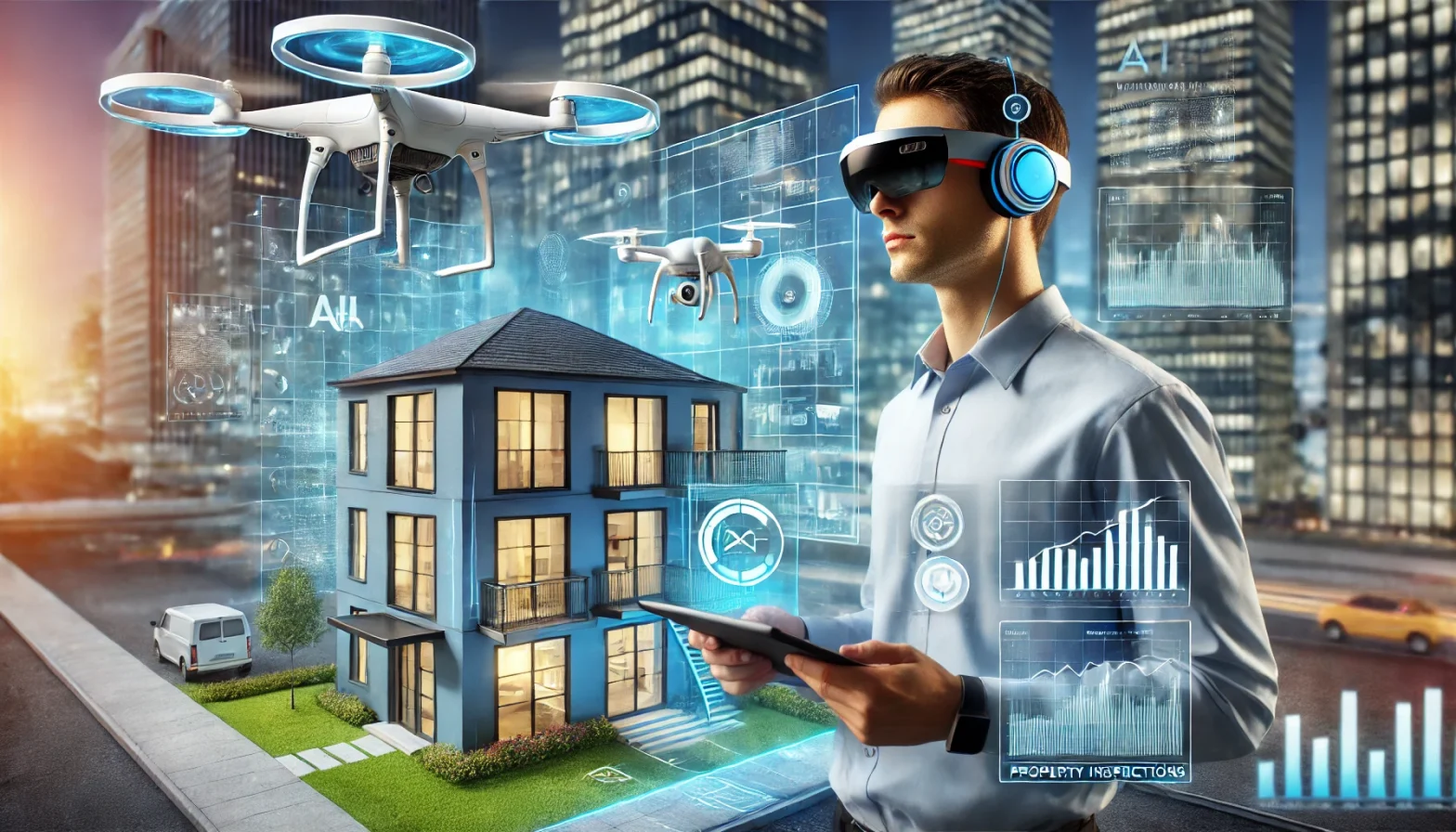How AI is Revolutionizing Home and Commercial Property Inspections
In the world of property inspections, time, accuracy, and efficiency are critical. Home inspectors and commercial property assessors are responsible for evaluating structures, identifying potential issues, and delivering reports that influence major financial decisions. However, traditional inspection methods can be time-consuming and prone to human error. Artificial intelligence (AI) is rapidly transforming this industry, offering cutting-edge solutions that enhance the speed, precision, and overall effectiveness of inspections.
How AI Can Speed Up Property Inspections
1. Automated Image Recognition & Defect Detection
AI-powered tools can analyze images and videos to identify structural defects, water damage, cracks, electrical issues, and more. By using machine learning algorithms trained on thousands of inspection images, AI can instantly flag potential problems that might take a human inspector much longer to identify. This not only reduces inspection time but also ensures more accurate assessments.
2. Drone & AI Integration for Roof and Exterior Inspections
Inspecting roofs, facades, and large commercial structures can be challenging and dangerous. AI-powered drones equipped with high-resolution cameras and infrared sensors can scan properties in minutes. These drones collect vast amounts of data, which AI then analyzes to detect anomalies such as leaks, missing shingles, or structural weaknesses. This process eliminates the need for risky manual inspections while increasing efficiency.
3. Smart Data Collection & Analysis
Traditional property inspections require inspectors to manually document findings, take notes, and compile reports. AI-driven software can automate much of this process. Smart inspection apps can auto-generate reports based on voice commands, image recognition, and AI-assisted analysis, reducing paperwork and allowing inspectors to focus on more critical tasks.
4. Predictive Maintenance & Risk Assessment
AI doesn’t just identify existing issues—it can predict future problems based on historical data. By analyzing patterns from past inspections, AI can forecast when certain components, such as HVAC systems or plumbing, might need maintenance. This predictive capability can help homeowners and businesses take proactive steps to prevent costly repairs down the road.
5. Natural Language Processing (NLP) for Report Generation
AI-driven NLP tools can automatically generate comprehensive, easy-to-read reports based on inspection data. Instead of spending hours drafting detailed assessments, inspectors can rely on AI to structure and summarize findings, ensuring reports are professional, accurate, and standardized.
6. AI-Powered Smart Assistants
Imagine an AI-powered assistant that guides inspectors in real time, suggesting checklists based on the type of property and regulatory requirements. These AI assistants can ensure no critical step is overlooked, leading to higher-quality inspections and compliance with industry standards.
The Future of AI in Property Inspections
As AI technology continues to evolve, we can expect even more advancements in property inspections. Augmented reality (AR) tools could allow inspectors to overlay digital information onto physical structures in real time, while AI-driven chatbots could offer instant insights based on inspection data. With continued innovation, AI has the potential to make inspections faster, safer, and more reliable than ever before.
Final Thoughts
AI is poised to transform the home and commercial property inspection industry. By leveraging AI-powered tools, inspectors can streamline their workflows, reduce human error, and deliver more precise assessments. Whether through automated defect detection, drone-based evaluations, or predictive analytics, AI is making property inspections smarter, faster, and more efficient.
For inspectors looking to stay ahead of the curve, integrating AI into their workflow isn’t just an option—it’s the future of the industry.

